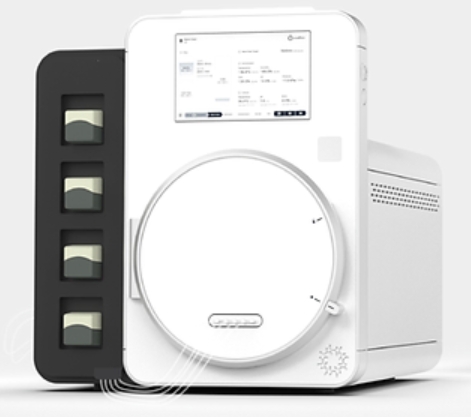
The COVID-19-induced upsurge in biotech and pharma IPOs in 2020-21 dipped sharply in 2022 and further waned in 2023.
Between 2021 and 2023, the biotech IPO market experienced a notable decline as investors grew increasingly cautious due to the uncertainties surrounding the pandemic and economic downturn. According to the Nasdaq Biotechnology Index (NBI), only 21 biotech IPOs were recorded in 2022, a significant decrease compared to the 104 biotech IPOs observed in 2021. Another report highlights that just 38 life science companies went public between 2022 and 2023, compared to 179 across 2020-2021, according to data from Silicon Valley Bank. That's the lowest in two years since 2011-2012.
In 2024, several pharmaceutical companies announced significant funding efforts and IPOs to advance their innovative therapies. The latest entrant is Rapport Therapeutics, backed by Johnson & Johnson, which filed for an IPO to develop small-molecule medicines for central nervous system disorders, targeting epilepsy, peripheral neuropathic pain, and bipolar disorder on May 17. Earlier, on April 4, Contineum Therapeutics raised $110 million to develop novel oral small-molecule therapies for neuroscience, inflammation, and immunology. Boundless Bio, focusing on extrachromosomal DNA biology to treat oncogene-amplified cancers, unveiled a $100 million IPO on March 27. Chinese biotech Qyuns Therapeutics, specialising in biologic antibody drugs for autoimmune and allergic diseases, raised approximately $31.10 million through an IPO on March 20. Other notable funding efforts included Kyverna Therapeutics with $319 million on February 7 for pioneering cell therapies for autoimmune diseases, and CG Oncology with $380 million on January 24 for developing bladder-sparing cancer therapeutics. These developments have reinvigorated the momentum in an otherwise stagnant biotech IPO landscape.
A Sudden Surge
Is the worst finally over? This has been weighing on the minds of many in the industry. Explains Yiming Liu, Partner at Cooley, “The expected rebound in biotech IPOs is driven by a convergence of favourable factors. Despite the broader economic uncertainties, the biotech sector remains robust, propelled by continued innovations in various therapeutic strategies and modalities around the world, including Asia/China. These innovations show significant promise translating into medicines, and are highly attractive to investors looking for the next breakthrough technology or blockbuster drug”.
“After several years of valuation adjustments”, continues Yiming, “the current, more moderate valuation levels of many Chinese biotechs are now appealing to secondary investors. Additionally, the shift towards profitability among successful biotech companies has bolstered investor confidence in their business models. With global capital markets gaining stability and liquidity improving, an increasing number of biotech firms are now poised to go public, seeking funds to drive further research and development.”
“There is a fundamental desire from healthcare investors to invest in innovation, and the biotech sector is an amazing place to deploy capital that directly translates into extraordinary impact,” adds Jordan Saxe, Head of Healthcare Listings at Nasdaq.
He adds,“ Because biotech focuses on curing disease and improving patient outcomes, companies in this sector have a huge effect on patient lives and can provide positive economic returns for investors. Biotech investors tend to invest in companies across the sector and at all stages, making for considerable momentum and capital coming into the Nasdaq, the exchange of choice for biotech, and the Nasdaq Biotech Index (NBI). There is a significant amount of capital in the marketplace looking for investment opportunities and this year, we’re starting to see that money be deployed accordingly.”
Despite wariness from investors towards pre-profit companies in some industries, post-pandemic the healthcare sector continues to generate plenty of excitement and investor interest driven by a strong pipeline of new drugs and innovative technologies.
“The hope for a sustained rebound in biotech IPOs is underpinned by several factors, including a rise in early-stage private capital funding and general optimism within the sector. This positive outlook is supported by the recovery of biotech's main stock funds and increased dealmaking,” says Adam Farlow, Global Chair of Baker McKenzie’s Capital Markets Practice Group.
While there has been a rebound in biotech IPO activity, experts caution against overly optimistic expectations. Despite the recent surge in funding and IPOs in the biopharmaceutical sector, several factors warrant careful consideration.
“While there are signs of improving market sentiment and we expect windows of opportunity for IPOs to emerge, we do not anticipate a full risk-on approach with a green light for all companies. There has been a general trend over the past few years for certain growth companies to remain private for longer. The increase in the availability of private credit, as a separate category from PE investment, has provided a way to address funding requirements without the need to sacrifice any ownership and/or control and has thrown a lifeline to companies seeking an alternative source of funding. The public markets continue to remain selective at this point in the cycle with early-stage biotech companies likely to face the steepest path to market. Such companies may need to rely on private capital to fund further growth and progress,” observes Sheng Chen, senior capital markets and US securities lawyer at Baker McKenzie in Hong Kong.
Wave of Innovation
Biotech companies holding unique, high-potential assets—particularly those with first-in-class or best-in-class therapies—are capturing significant investor interest. Current trends indicate that biotech companies with drugs already in advanced clinical trials are best positioned for IPO success, suggesting a market preference for late-stage assets. Within the biotech space, there is a notable interest in companies focusing on innovative therapies, particularly gene and cell therapies, neurological disorders and rare diseases.
“Notably, oncology drugs employing innovative modalities like antibody-drug conjugates, radionuclide drug conjugates, multispecific antibodies, gene therapies, and cell therapies, among others, are drawing substantial attention. Another area of interest is metabolism drugs, including GLP-1 agonists, which are emerging as a focal point due to their tremendous market potential. Additionally, the adoption of AI in drug discovery continues to excite investors; this technology is revolutionising the industry by drastically reducing the time and cost of developing new treatments,” says Yiming Liu.
Big pharma's preferred modality, cancer therapies, are also highly sought after with CG Oncology's successful Nasdaq IPO kicking off the year and the recent IPO filing in Hong Kong by Singapore-based cancer diagnostic RNA technology firm Mirxes Holding being two examples.
“Other companies which are particularly hot or in demand among IPO investors continue to be radiopharmaceuticals, and I wouldn't be surprised if we see a few more companies in this space do a listing soon. Any late-stage assets that are unpartnered, with strong management teams, and focused execution are strong contenders for an IPO. In the US, this is also an election year, which could cause additional volatility to the capital markets in the second half of this year,” says Kimberly Ha, CEO & Founder, KKH Advisors, a strategic communications firm that advised this year's first biotech IPO, CG Oncology.
Australia-based Telix Pharmaceuticals, a leading player in radiopharmaceuticals recently announced its plans for the US IPO. Experts have also pointed to diabetes, weight loss, Antibody Drug Conjugates (ADC), CNS, and immunology & inflammation (I&I) as areas attracting investor interest. These companies are well-reflected in the 2024 class of IPOs that have been listed so far this year.
“I hope that companies with strong pipelines and experienced management teams continue to consider IPO as a potential exit strategy, and am fully expecting most companies to pursue a potential dual-track strategy. There are several M&A exits in the ADC and radiopharmaceutical space, and those remain attractive areas of interest in oncology for investors. CNS has also made a comeback this year, and investors are increasingly looking at auto-immune diseases as well,” says Kimberly.
Sustaining the momentum of Growth
Experts are hopeful that the rebound in IPOs will continue, reflecting renewed investor confidence and a robust pipeline of innovative biotech companies.
“Looking ahead at the biotech IPO landscape over the next few years, we anticipate a dynamic interplay of burgeoning opportunities and significant challenges. The ongoing demand for new and effective medical solutions, coupled with the accelerating use of biotechnological innovations, will continue to create compelling investment opportunities as these technologies approach commercial viability. Conversely, heightened regulatory scrutiny, geopolitical uncertainties, and economic volatility could potentially slow the pace of new IPOs, impact investor sentiment, and affect funding availability. Despite these hurdles, we foresee a vibrant, albeit complex, future for biotech firms aiming to raise funds and go public, characterised by both high-risk and high-reward scenarios,” says Yiming Liu.
Saxe echoes the same sentiments, “I’ve never been more excited for the opportunities that we see in the future of biotech because of the innovation and advancements we’re seeing in both science and AI. Companies can now leverage technology to improve efficiency and be more strategic in drug development. Hopefully, this translates directly to increased drug approvals happening in the near future.”
One notable trend is biotech brands choosing to list on Nasdaq from around the globe.
“For international companies looking to gain access to US investors, Nasdaq has the single deepest liquidity pool in the world and is supported by highly sophisticated institutional investors,” says Saxe.
Chinese companies, especially, are opting for US IPOs after China tightened scrutiny over stock listings.
“Between 2018 and 2023 more than 80 per cent of listings by biotech and pharma companies were on their home market. During this period, the Nasdaq was the preferred listing venue overall by both value and volume for biotech and pharma companies, though for Asian-based issuers the Shanghai Stock Exchange STAR Market saw the highest volume of IPOs, followed by Hong Kong. Since 2018, the Hong Kong Stock Exchange has had success in targeting pre-revenue biotech companies with tailored listing rules providing a clear pathway to going public and appealing to the large swathe of biotech companies emerging in Mainland China where there is significant investment in biotech R&D. If market sentiment continues to improve, exchanges in Hong Kong and Mainland China could be well-placed to benefit,” says Farlow.
Following the launch of a new listing chapter in recent years to welcome pre-revenue biotech companies, HKEX (The Stock Exchange of Hong Kong Limited) has welcomed many biotech firms, many of which are developing products targeting the fast-growing Mainland China market. These companies hail from sectors including healthcare services, pharmaceuticals, biologics and medical devices, and their listings have transformed the DNA of HKEX's markets.
“Since 2018, nearly 100 biotech firms have listed, raising a total of around HK$593 billion (end April 2024). Among them, 64 companies were pre-revenue or pre-revenue biotechnology companies, raising about HK$120.5 billion. The biotech firms are part of many others in the new economy sector space that has been listed on HKEX as part of broader listing reforms. More than 300 new-economy companies have listed in Hong Kong since HKEX's reforms in 2018 targeting innovative companies, raising more than HK$948 billion ($122 billion). New economy companies have represented 65 per cent of total IPO funds raised during this period. Looking ahead, HKEX will continue to foster a vibrant and comprehensive ecosystem for new economy companies with ambitious growth plans and capital-raising needs,” reveals a HKEX spokesperson.
The biotech sector has a backlog of companies waiting to go public due to slow markets in recent years. If economic conditions keep improving, there's likely to be strong interest in biotech despite ongoing global tensions.
“There are certainly opportunities ahead for the sector. Subdued markets over the past two years have contributed to a backlog of biotech companies waiting to go public and so we expect the healthcare sector to see strong interest if macroeconomic conditions continue to ease despite ongoing geopolitical headwinds. While venture capital investment, equity capital raising and M&A remain popular with biotech companies, licensing deals between biotech and pharma companies continue to increase, as the appetite for mutually beneficial risk-sharing and cost-sharing increases. Those companies aiming to test the IPO waters will most likely need a persuasive equity story and have entered the clinical trial stage,” says Farlow.
Of course, it's impossible not to discuss AI and its impact on the pharma and biotech industries, which will ultimately also influence IPO and biotech activity moving forward.
“It has been impossible to ignore the clamour around AI over the past 12 months and the healthcare space has been no exception. Hopes that AI could drive the speedier development and delivery of new blockbuster drugs and breakthrough therapies could also create a tailwind for a wave of new companies to go public and perhaps provide an off-ramp for PE and other early-stage investors,” says Farlow.
This is an interesting time for biotech companies awaiting IPO funding. While there's optimism that the worst may be behind for the biotech sector, uncertainties persist. However, with ongoing developments and potential for revival, the future remains promising for those navigating the IPO journey in the biotech industry.
Ayesha Siddiqui




